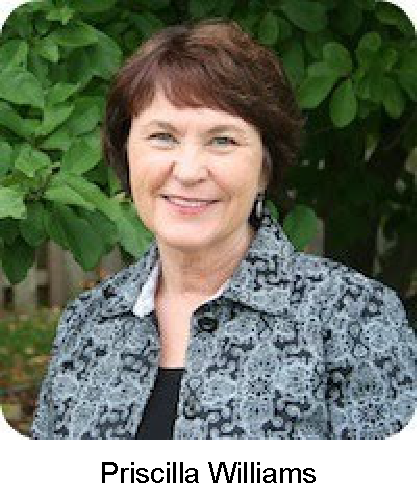 |
 |
 |
 |
 |
 |
 |
 |
 |

READ, READ, READ
Our educational unit this month is Read, Read, Read! We will be learning more about some of our favorite authors and enjoying some of their most fabulous stories. Throughout the month, we are welcoming and encouraging you or another family member to bring favorite childhood stories in to read to your child's class. Please see your child's teacher to sign up. 
|


|
HAPPY BIRTHDAY DR. SEUSS!
March 5:
"SLEEP BOOK" (Pajama Day)
March 6:
"GREEN EGGS & HAM" (Wear the color green)
March 7:
"WACKY WEDNESDAY" (Get silly...wear your clothes backwards, inside out or mismatched)
March 8:
"THE CAT IN THE HAT" (Hat Day)
Friday, March 9:
"Fox in Socks" (Wear silly or mismatched socks)
|
 |
IN-HOUSE FIELD TRIP
Wonder Weavers storytelling will be coming to EFC on Monday, March 12 beginning at 9:30am. We invite you to come join us for a fun filled storytelling experience. Please see the sign in desk for specific times for your child's class.
|
|
 |


|
RAINBOW YOGURT
Here is a fun snack for your little leprechauns to make at home. In six separate bowls, add your favorite plain or vanilla yogurt. Allow your child to mix a different color of gel food coloring into each bowl of yogurt. Once all colors are mixed, layer in a clear bowl or small juice glass. Enjoy this healthy and beautiful treat!
RAINBOW
Red, orange, yellow
Green and blue.
Indigo and purple are in there too.
Shining brightly way up high,
I see a rainbow in the sky.
Rain and sun work together,
Making it my favorite weather.
By: Erin Weingoertner (Tune of "Twinkle, Twinkle")
|
|
 |


|
10 REASONS YOU SHOULD READ TO YOUR CHILDREN
We all know reading to our kids is a good thing - but are you familiar with the specific advantages your toddler or preschool-age child can receive by being exposed to the merits of reading? Below are some benefits that highlight the importance of reading to your child between the ages of two and five.
- A stronger relationship with you. As children get older they are more on the go. Reading a book together allows time to slow down and snuggle.
- Academic excellence. One of the primary benefits of reading is higher aptitude of learning in general. Studies show that children exposed to reading before preschool are more likely to do well in all facets of formal education.
- Basic speech skills. Throughout toddlerhood and preschool, your child is learning critical language and enunciation skills. By listening to you read One Fish Two Fish Red Fish Blue Fish, your child is reinforcing the basic sounds that form language.
- The basics of how to read a book. Children are not born with the innate knowledge that text is read from left to right or that words are separate from images. Essential pre-reading skills like these are among the major benefits of early reading.Better communication skills. Children will be much more likely to express themselves and relate to others in a healthy way.
- Better communication skills. Children will be much more likely to express themselves and relate to others in a healthy way.
- Mastery of language. Early reading for toddlers has been linked to a better grasp of the fundamentals of language as they approach school age.
- More logical thinking skills. Helps children to grasp abstract concepts, apply logic to various scenarios, recognize cause and effect and utilize good judgment.
- Acclamation of new experiences. When reaching developmental milestones or potentially stressful experiences, reading relevant stories can help ease the transition.
- Enhanced concentration and discipline. Your child will learn self-discipline, gain a longer attention span and better memory retention.
- The knowledge that reading is fun! Early reading for toddlers helps them view books as indulgence, not a chore. Kids exposed to reading are much more likely to choose books over video games and television.
Great book lists
|
|
 |

GETTING ENOUGH SLEEP
Are your children getting enough sleep? Many studies have shown that children who do not get good quality sleep on a regular basis can have a variety of significant side effects. One is that their cognitive performance suffers.
That is because while we are sleeping, our brains are very active. "While in deep sleep,
all the information children have learned gets selected, consolidated and stored in the long-term memory, so it can be put to good use at a later date," says sleep physiologist Dr. Guy Meadows. "A child has to be awake enough to be focused and attentive in the first place, and then well-rested to recall those memories and use them to solve problems in the future.
Poor sleep can affect every stage of the learning process."
You may ask, "How much sleep does my child need?" Everyone's needs are different, but health professionals recommend that each day, children ages 1-2 get 11-14 hours, 3-5 get 10-13 hours, and 6-13 get 9-11 hours.
Across the world, children are sleeping less. There are a number of reasons for this, chief among them is dependence on technology, a more child-centered style of parenting, poor diet, and the example set by an older generation who work longer hours, come home later, and constantly check their phones.
"Our benchmark of what is normal is changing," says Meadows. "For children and adults, waking up feeling tired is becoming the new normal. So people are just reaching for energy drinks, reaching for caffeine as ways of coping and seeing that as perfectly normal. Parents need to make their children aware of the importance of sleep." Parents can become role models for their children, showing them, "I don't stay up late, I have a regular bedtime, I don't stay on my smart phone before bed."
Tips for a child's good night
- Avoid sugary snacks and caffeine; particularly at suppertime. Opt for alternatives like banana, oatmeal or whole wheat bread.
- Think about the bedroom environment: is it calm and conducive to sleep?
- Have a consistent routine that you follow every evening in the hour before bedtime.
- Consider whether bathtime is relaxing. If it isn't, separate it from the bedtime routine. If it is, have the bath 30 minutes before bedtime to allow the body temperature to rise and then drop again - this helps us feel sleepy.
- No screen activity in the hour before bed; no TVs, computers, phones or tablets.
- Activities involving hand-eye coordination help the brain wind down before bed - things like puzzles or coloring.
- Have a set wake-up time, even on the weekends.
- Provide your child with a visual cue so they know when it is time to wake up, like a light on a timer.
Many of these tips can be used by adults too!
Information taken from:
Children of the World Sleeping Less, Child Care Exchange
|
 |
TWIN CITIES
FAMILY EVENTS
Now-3/18 The Wiz, Children's Theatre Company, Mpls
|
|
|
|
|
"Play is the highest form of research."
- Albert Einstein
|
|
|
|
|
|
 |
|
| |
 |
|
 |
|
 |
 |
 |
 |
 |
 |
 |
 |
 |